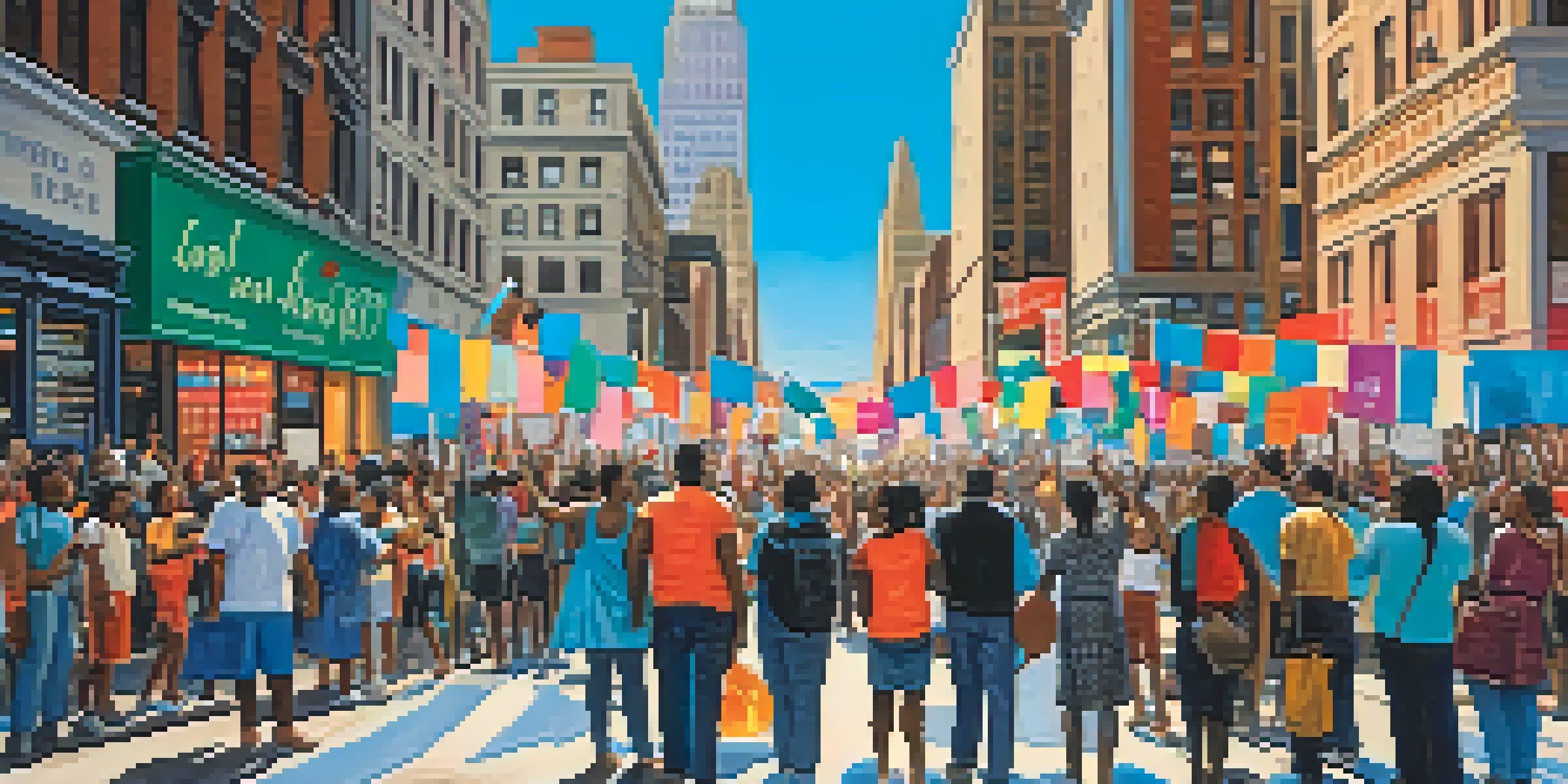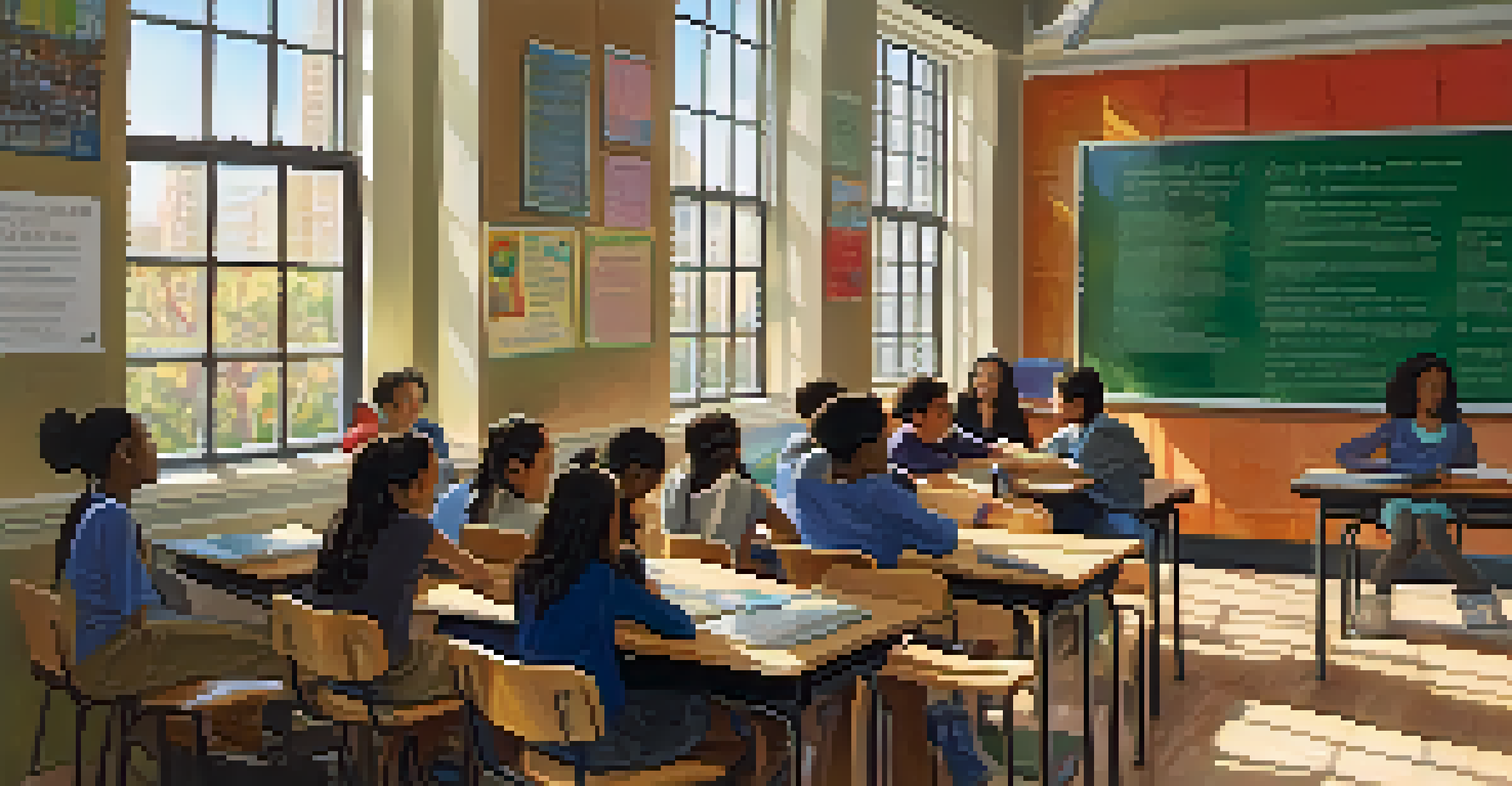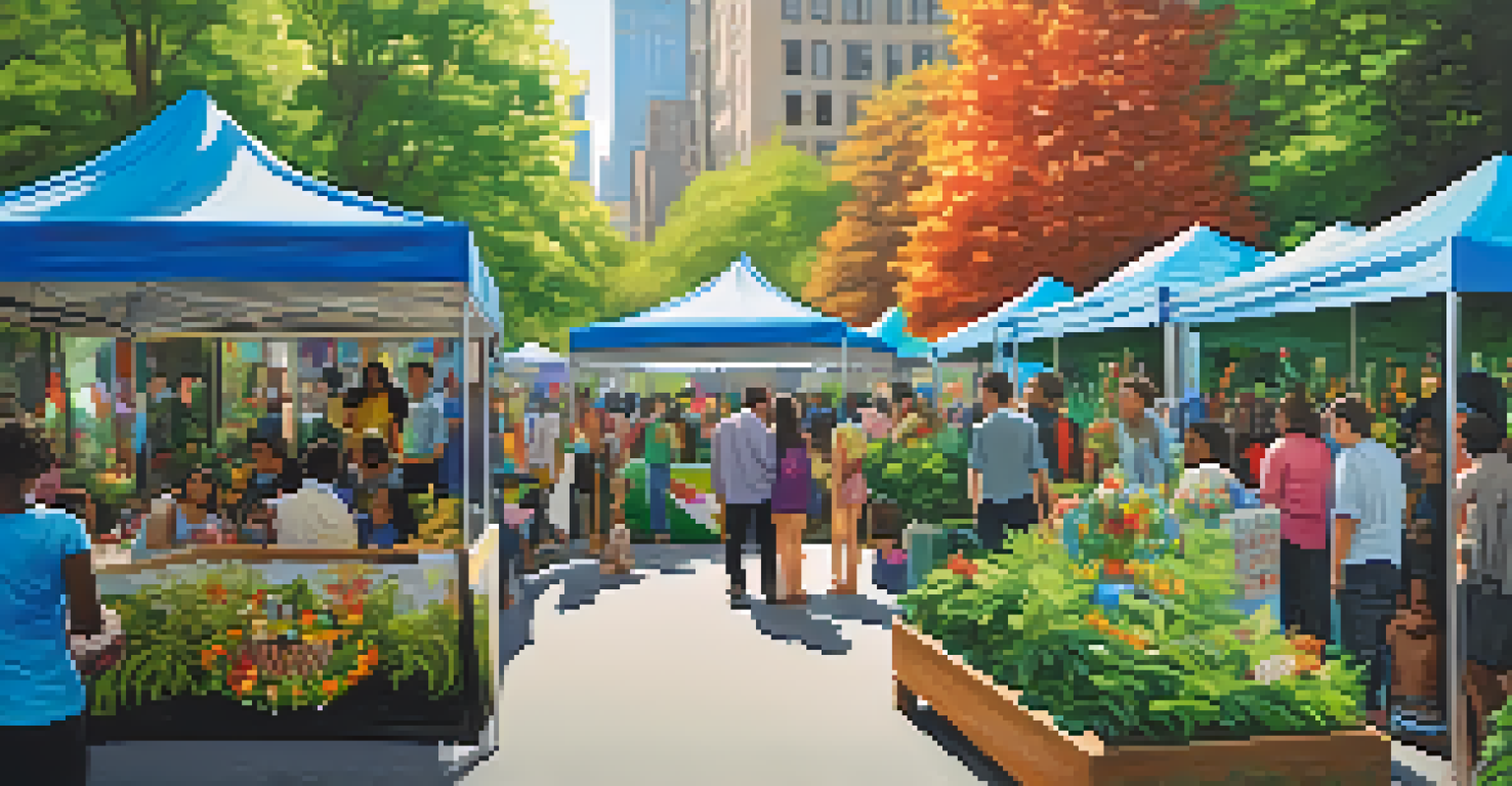The Role of NYC in Promoting Human Rights on an International Scale

Introduction to NYC as a Human Rights Hub
New York City is often seen as the beating heart of the United Nations, hosting its headquarters and various agencies dedicated to global issues. This unique position allows NYC to play a pivotal role in shaping international human rights policies. The city's diversity and vibrant culture also reflect a commitment to human rights, making it a natural advocate on the global stage.
Injustice anywhere is a threat to justice everywhere.
With a rich tapestry of communities, NYC embodies the principles of inclusion and equality. This diversity not only enriches the city but also propels its mission to promote human rights. Organizations based in the city actively engage in discussions and initiatives that influence policies worldwide.
Furthermore, NYC serves as a gathering point for thought leaders, activists, and policymakers, facilitating dialogues that address pressing human rights challenges. This collaborative environment fosters innovative solutions and encourages a collective approach to uphold human dignity globally.
The Role of International Organizations in NYC
New York City is home to numerous international organizations, including the United Nations, Amnesty International, and Human Rights Watch. These organizations work tirelessly to advocate for human rights and hold governments accountable for violations. Their presence in NYC amplifies the city's role as a global leader in human rights advocacy.

Through conferences, reports, and campaigns, these organizations influence public opinion and policy decisions around the world. For instance, the UN frequently addresses human rights issues during its assemblies, with NYC as the backdrop for these critical discussions. This emphasizes the city's strategic importance in the realm of international human rights.
NYC: A Global Human Rights Hub
New York City's unique position as home to the UN and various international organizations amplifies its role in shaping and advocating for human rights policies worldwide.
Moreover, the collaboration between local NGOs and international organizations fosters a vibrant ecosystem that promotes awareness and action. This synergy not only highlights NYC's commitment to human rights but also inspires other cities to follow suit, creating a ripple effect across the globe.
Grassroots Movements and Activism in NYC
NYC has a rich history of grassroots movements that have driven significant changes in human rights. From the civil rights movement to contemporary issues like LGBTQ+ rights and immigrant advocacy, grassroots activism has been a powerful force in shaping the city's policies. These movements often start small but can lead to monumental shifts in societal attitudes and laws.
The rights of every man are diminished when the rights of one man are threatened.
Community organizations and activists in NYC play a crucial role in raising awareness and mobilizing support for various human rights causes. They harness social media, art, and public demonstrations to engage citizens and spread their message far and wide. This grassroots energy not only fuels local change but also resonates on an international level.
Through events like the annual NYC Pride Parade or rallies against police brutality, activists demonstrate the city's commitment to human rights. These events are not just local gatherings; they often attract global attention, inspiring movements in other parts of the world and showcasing the power of collective action.
The Impact of NYC on Global Human Rights Policies
NYC's influence extends beyond its borders, significantly impacting global human rights policies. The city often sets the agenda for discussions on critical issues, such as gender equality, racial justice, and refugee rights. By hosting international dialogues and summits, NYC helps shape the policies that govern human rights worldwide.
For example, the United Nations General Assembly held in NYC regularly addresses human rights issues, with member states collaborating to draft resolutions. These resolutions can lead to binding international treaties or agreements, underscoring NYC's role in global governance. The city thus acts as a catalyst for change, encouraging nations to adopt more progressive human rights standards.
Grassroots Activism Drives Change
The city's rich history of grassroots movements empowers local communities to advocate for human rights, influencing societal attitudes and inspiring global movements.
Moreover, NYC's diverse population brings various perspectives to these discussions, enriching the dialogue. This inclusivity ensures that the voices of marginalized communities are heard, influencing the development of policies that are equitable and just.
Education and Awareness Initiatives in NYC
Education plays a vital role in promoting human rights, and NYC is home to numerous initiatives aimed at raising awareness. Schools, universities, and nonprofits host programs that educate citizens about their rights and the importance of advocacy. These initiatives empower individuals to engage in the fight for human rights both locally and globally.
For instance, many educational institutions offer courses focused on human rights law, social justice, and activism. These programs equip students with the knowledge and skills necessary to effect change in their communities. By fostering a culture of awareness, NYC encourages its residents to be proactive in addressing human rights issues.
Furthermore, public events such as film screenings, lectures, and art exhibitions often highlight human rights struggles. These cultural initiatives not only engage the community but also create a dialogue around these important topics, making human rights a shared concern among NYC's diverse population.
NYC's Role in Refugee and Immigrant Rights
As a city built by immigrants, NYC has a unique role in advocating for refugee and immigrant rights. Local organizations and community leaders work tirelessly to ensure that newcomers receive the support they need to integrate into society. This commitment to inclusivity reinforces the city's reputation as a global leader in human rights.
Programs aimed at providing legal assistance, language classes, and job training help empower immigrants in NYC. These services not only assist individuals but also enrich the city's cultural fabric. By championing the rights of refugees and immigrants, NYC sets an example for other cities grappling with similar challenges.
Education Fuels Human Rights Awareness
NYC's numerous educational initiatives play a crucial role in raising awareness and empowering individuals to engage in the fight for human rights both locally and globally.
Moreover, NYC's response to global refugee crises often influences national policies. The city's initiatives serve as models for other jurisdictions, demonstrating the importance of compassion and support for those seeking safety and a better life.
Conclusion: NYC as a Model for Global Human Rights Advocacy
In conclusion, New York City's multifaceted role in promoting human rights on an international scale is undeniable. From its position as a hub for international organizations to the grassroots activism that thrives within its neighborhoods, NYC exemplifies a commitment to human dignity. The city's diverse population and vibrant culture further enrich its advocacy efforts.
As we look to the future, NYC continues to inspire global movements for justice and equality. Its initiatives not only address local issues but also resonate with communities worldwide, encouraging a collective fight for human rights. The city's ongoing dedication serves as a reminder that change starts at home but can have far-reaching effects.

Ultimately, NYC stands as a beacon of hope and progress in the realm of human rights. By fostering collaboration, education, and activism, the city paves the way for a more just and equitable world, proving that even in a complex global landscape, positive change is possible.